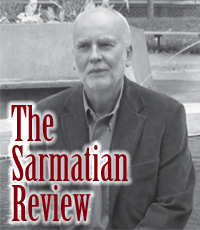| This Issue | Back Issues | Editorial Board | Contact Information |

Our Take - Blindness and Insight in Polish Studies
January 2006
Volume XXVI, No. 1
“The field of Polish language and literature studies in the U.S. is a small, intimate field with only a handful of faculty, mostly of Polish origin, representing it. Everyone knows everyone else, and all are hesitant to ‘hurt’ each other lest they hurt the field itself. Polish culture is a high context, patronage culture [our italics], so this is a natural response.”
This patronizing and “orientalist” comment was made last year at an American university, a propos of a colleague whom the speaker wished to see fired. If the culture of some other substantial ethnic group in America were described as “high context and patronage-based,” an academic scandal might follow. To suggest that the field of Polish studies is grounded in a feeble “patronage” of a group of persons of “Polish origin” (in other words, that it is worthless and meaningless in an of itself, and acquires meaning only because those persons of Polish origin “contextualize it” within their fantasy world) reminds one of the times when similar comments were made about Russian studies, or women’s studies, or postcolonial studies, or black studies, or Jewish studies. Before the Second World War, women had no history. Before the First World War, Russian literature was hardly ever studied at American universities. Before Edward Said, sensitivity toward “Orientalism” existed only in a subaltern context. Today, the areas to which some scholars remain hostile or indifferent include Polish studies, as witnessed by the above description about subjective “contextualization” and “patronage.”
We have several suggestions aimed at de-facilitating such allegations. The Polish Institute of Arts and Sciences (PIASA) headquartered in New York should reconsider its policy of organizing “PIASA conferences” which drain away panels and presentations on Polish topics from reputable academic conferences organized by the American Historical Association, American Association for the Advancement of Slavic Studies, American Association of Teachers of Slavic and East European Languages, American Political Science Association, and Modern Language Association. Instead, PIASA should actively encourage Polish scholars to organize panels and give papers at American professional conferences. At present, there are hardly any such panels at the meetings of American professional organizations. By means of PIASA conferences Polish history, literature, and social sciences are kept away from the eyes of the American humanistic professoriate. The decision-makers at PIASA should not work to isolate Polish scholars from the American mainstream. Originally, PIASA conferences were set up to give an opportunity to Polish exiles to meet together and discuss scholarly matters that they could not discuss in occupied Poland. But Poland is no longer occupied, and policies should be readjusted accordingly.
Second, Polish scholars should resist the tendency of American scholarly journals to have Polish books reviewed in professional journals by the ethnically Polish academics. Journals such as Slavic Review or SEEJ tend to send to ethnic Poles books written by other ethnic Poles, thus erecting yet another fence keeping Polish studies within the Polish ghetto. Such policies had long been abandoned by other minorities; holding on to them with regard to Polish topics facilitates and abets the discrimination which Polish studies currently experience in American academia. ∆
Back to the January 2006 Issue
The Sarmatian Review
sarmatia@rice.edu
Last updated 1/13/06